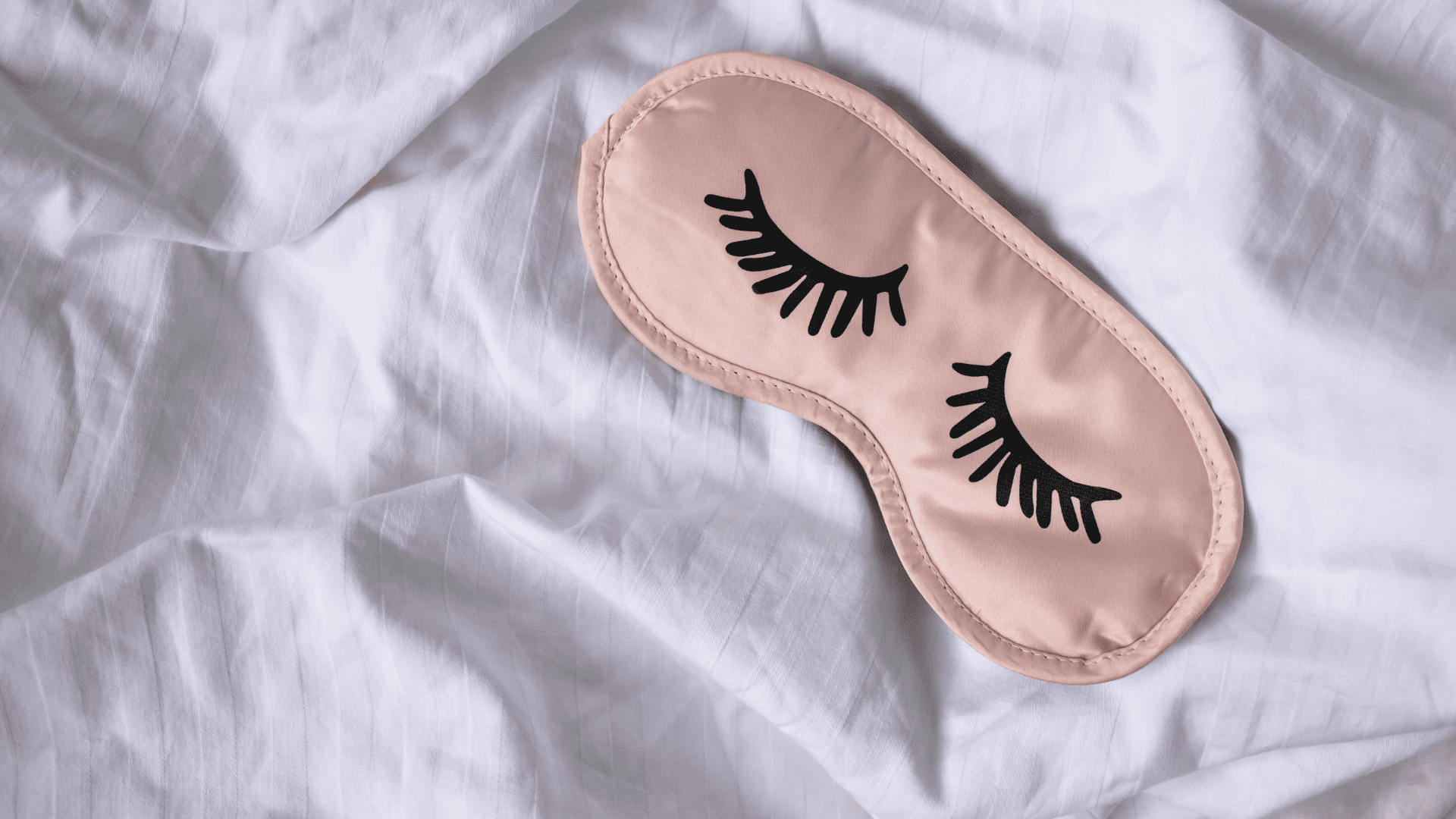Sleep soundly in Sleeptember (and year-round!)

Sleep takes up about one-third of our lives and is critical to our physical and mental health. Yet research shows that a third of us sleep for just five to six hours a night.
September marks the start of The Sleep Charity’s annual awareness campaign, Sleeptember!
Sleeptember is a month dedicated to emphasising the importance of quality sleep, exploring the factors that can impact sleep and sharing the best practices to help ensure we get the restful slumber we need.
Let’s jump right in.

Why is sleep so important?
Sleep isn’t just a time to rest—it’s a crucial and complex process that helps to keep us healthy.
Adequate sleep enhances cognitive functions such as memory, concentration, and problem-solving abilities and plays an important role in emotional regulation, helping to manage stress and mood.
On the physical front, sleep is essential for the body’s repair processes, supporting immune function, and maintaining metabolic balance, with chronic sleep deprivation leading to serious health issues, including an increased risk of heart disease, diabetes, and obesity.
Additionally, sleep also plays a vital role in mental health; individuals who consistently get less than 6 hours of sleep are significantly more likely to experience depression and anxiety.
In essence, good sleep is vital for enhancing your quality of life and having the energy and motivation for your daily activities!
How much sleep should we be aiming for?
While there isn’t a one-size-fits-all amount of sleep, as individual needs vary, the quality of your sleep is more important than the exact number of hours. Generally, seven to eight hours is a good target for most people. The best indicator of whether you’re getting sufficient sleep is how refreshed and alert you feel the following day.


The link between sleep and
work performance
Getting enough sleep is key to performing well at work.
Poor sleepers have reduced reaction times and trouble concentrating, which leads to lower productivity, increased absenteeism, and workplace accidents.
In fact, sleep deprivation costs the UK economy an estimated £37 billion a year in lost productivity. Sleepy employees are 70% more likely to be involved in workplace accidents than colleagues who are not sleep-deprived, and according to Nuffield Health, chronically disrupted sleep increases the risk of work absence by 171%.
It is clear that improving the population’s sleep quality could significantly benefit UK workplaces and the economy.
Now that we know how important quality sleep is let’s explore why so many people aren’t getting the sleep they need and how we can improve this.
What contributes to poor sleep?
Many conditions and lifestyle factors influence poor sleep. Here, we delve into the most common contributors and what you can do to help.
Insomnia
Insomnia involves difficulty falling or staying asleep, leading to tiredness, irritability, and poor concentration. It can be short-term or chronic, with long-term cases lasting over three months and often exacerbated by worry about sleep.
Common causes include stress, anxiety, depression, menopausal symptoms, noise, uncomfortable sleeping conditions, substances (like alcohol and caffeine), shift work, and jet lag. Insomnia is also often linked to other health conditions.
How to treat
Treatment usually involves lifestyle changes like sticking to a regular sleep schedule and practicing good sleep hygiene. Specialised cognitive behavioural therapy for insomnia (CBT-I) can also help by addressing thought patterns related to sleep.


Sleep apnoea
Sleep apnoea causes breathing to start and stop during sleep, with obstructive sleep apnoea being the most common type. It leads to loud snoring, gasping, and frequent awakenings.
This condition results in fatigue, difficulty concentrating, headaches, and mood swings and is linked to high blood pressure, heart disease, and strokes if untreated.
How to treat
Diagnosis is made at a specialist sleep clinic, and treatment often involves using a CPAP machine, which keeps airways open by pumping air through a mask. Patients are also advised to lose weight, sleep on their sides, reduce alcohol intake, and avoid smoking and sleeping pills.
The DVLA requires notification of moderate or severe obstructive sleep apnoea with excessive sleepiness. If the condition affects an employee’s job, Occupational Health are here to help!
Narcolepsy
Narcolepsy is a rare brain condition that causes sufferers to suddenly fall asleep at unpredictable moments. Symptoms include daytime drowsiness, sudden sleep attacks, muscle weakness, sleep paralysis, and disrupted night-time sleep.
Narcolepsy is often associated with a lack of a brain chemical called hypocretin — and triggers include hormonal changes, psychological stress and infections such as swine flu.
How to treat
There is no cure, but sufferers can alter their sleeping habits — including taking daytime naps — and take medication to manage the condition.
If uncontrolled, narcolepsy is likely to affect sufferers’ work performance and ability and entitlement to drive, and it must be reported to the DVLA.


Restless legs syndrome
Restless Legs Syndrome (RLS) causes an intense urge to move the legs, often with an unpleasant crawling sensation, especially at night. While the exact cause is unclear, it may be linked to dopamine regulation. In some cases, it’s secondary to iron deficiency or kidney failure, and can occur during pregnancy.
How to treat
Treatment involves lifestyle changes, such as better sleep habits, exercise, and quitting smoking. Severe cases may require medication to manage dopamine and iron levels. Without treatment, RLS can worsen and impact daily life.
Lifestyle habits
Our daily habits can seriously impact how well we sleep. Inconsistent bedtimes and wake-up times and using screens before bed can mess with your body’s internal clock, making it tough to get a good night’s rest. Drinking too much caffeine or alcohol, not getting enough exercise, and eating late at night can also play a huge part.
Thankfully, a few simple tips can significantly improve our zzz’s, such as:
- Sticking to a regular sleep routine by going to bed and waking up at the same time each day.
- Reducing caffeine, alcohol, and screen time before bed to help your body relax.
- Adding more physical activity to your day for better sleep at night.
- Getting some natural sunlight in the morning to help regulate your sleep cycle.
- Doing yoga or breathing exercises before bed to unwind and relax.
- Putting a lavender spray or oil on your pillow to create a calm, soothing environment.
- Relaxing in a warm bath in the evening to help your body prepare for restful sleep.

What can employers do to help?
Employers can make a big difference in helping their employees sleep better by creating a supportive environment and offering practical resources – especially for those who work night shifts.
Here are some helpful ideas to consider:
- Encourage regular breaks and discourage excessive overtime to prevent burnout and stress, which can disrupt sleep.
- Provide flexible work hours or remote work options to help employees better manage their time and get enough rest.
- Offer resources or workshops on good sleep practices, like keeping a consistent sleep schedule and creating a calming sleep environment.
- If possible, set up quiet areas where employees can take short breaks and recharge during the day, especially if they work long or night shifts.
- Support workplace wellness programs that encourage regular exercise, which can lead to better sleep.
- Educate employees about the impact of screen time on sleep and suggest ways to minimise blue light exposure, especially in the evening.
- For night shifts, consider gradual shift rotations and extra recovery time to help employees maintain better sleep patterns.
- Address stress and anxiety through access to counselling services or Employee Assistance Programs (EAPs), as these can significantly affect sleep.
- Share tips on mindfulness, breathing exercises, or other relaxing activities to help employees wind down before bed.
By taking these steps, employers can help create a healthier, more rested, and more productive workplace!
If your team is struggling with sleep or you need expert advice on managing night shifts, we’re here to help.
Our Occupational Health and Health Surveillance services offer customised solutions to tackle sleep issues and boost overall employee wellbeing.
Feel free to reach out to our friendly team here. And don’t forget to download our free handout, The Importance of Sleep: A Guide for Employees, to share with your team.
Happy Sleeping!
The Latest from our Blog…
Check out our blog for all of the latest news, events and updates from Medigold Health.
-

Why self-identification matters in neurodiversity
What’s behind the rise in ADHD diagnoses? Is it social media, increased awareness – or something else entirely? And how does self-identification fit into all of this? Our Lead Disability Training and Consultancy Specialist, Kath Wood, shares her expert insights on why more people are recognising themselves as neurodivergent, what[...]
Read More -

World Health Day 2025: Why your business needs to be supporting working Mums
Every year on 7th April, World Health Day gives us a chance to pause and reflect on the most pressing health issues facing people around the globe. This year’s theme – Healthy Beginnings, Hopeful Futures – puts the spotlight on maternal and newborn health, with the World Health Organisation calling[...]
Read More -

Is your workplace stressed out? Discover our top strategies for a healthier, happier workplace
April is Stress Awareness Month, and we’re taking this opportunity to spotlight the impact of stress in the workplace and its effects on employees’ mental wellbeing! We’ll also share practical strategies to help create a stress-free environment, ensuring your team feels supported and empowered to thrive. The impact of[...]
Read More





